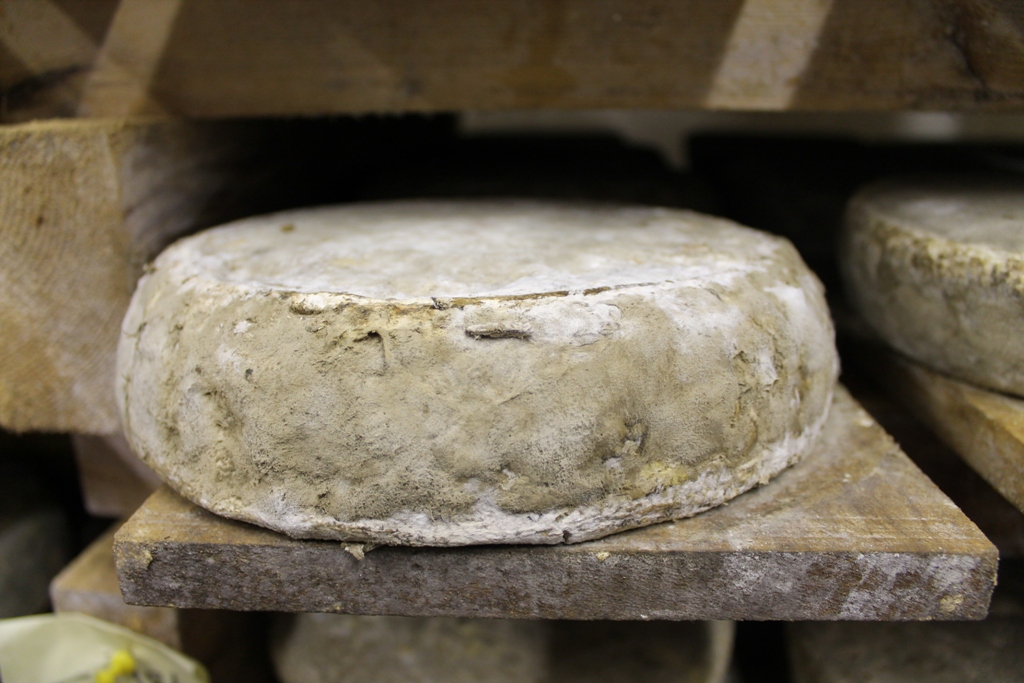
La sélection rigoureuse du lait permet d’éviter les accidents de fabrication (les bactéries hétérofermentaires doivent être absentes afin d’éviter les gonflements tardif de la pâte). Un traitement thermique de type thermisation (63°C à 65°C pendant 15 à 20s) limite le risque de gonflement précoce.
La coagulation à dominance présure est obtenue après légère maturation du lait par des ferments peu acidifiants et en faible quantité, par addition sur lait peu acidifié de 20 à 40ml de présure pour 100 litres de lait. La température est maintenue entre 32 et 36°C et le coagulation dure 30 à 45 minutes en général. Le caillé obtenu ne peut s’égoutter spontanément, il est soumis à des traitements physiques qui l’accélèrent et l’intensifient. Le gel est tranché (grains de caillé de la taille d’un grain de riz à celle d’une noisette selon les fromages) puis brassé en cuve (pendant 30 à 90 minutes) pour éliminer une partie du lactosérum qu’il contient. Souvent, le lactosérum est éliminé et le caillé est lavé (délactosage), avant d’être moulé.
Pour la fabrication des fromages à pâtes préssées non cuites, l’égouttage en cuve est suivi d’un pressage soit de la masse caillé (le gâteau) qui est pressé et tranché plusieurs fois avant d’être salé dans la masse et moulé (c’estle cas des Cantal, salers, Laguiole) ; soit du caillé déjà mis en moule (Reblochon, Saint Nectaire, Saint-Paulin, tommes…). L’intensité de l’égouttage permet d’obtenir des taux de matière sèche élevé 44 à 55%.
C’est pendant le pressage ou aussitôt après que s’effectue l’acidification de la pâte sous l’effet des ferments.
Les fromages qui n’ont pas été salés dans la masse sont plongés dans un bain de saumure avant d’être mis au hâloir puis en caves.
L’affinage des fromages à pâtes préssées non cuites dure de 2 semaines (Saint-Paulin), 2 à 3 mois pour les tommes, morbier et cantal, à plus d’un an (salers, laguiole) en cave humide et fraîche 10°C à 15°C.
Exemples de fromages à pâtes préssées non cuites : Reblochon, Saint-Nectaire, Ossau-Iraty et autre fromage basque, Laguiole, Cantal, Salers, Tome des Bauges, Cheddar, Manchego,...
